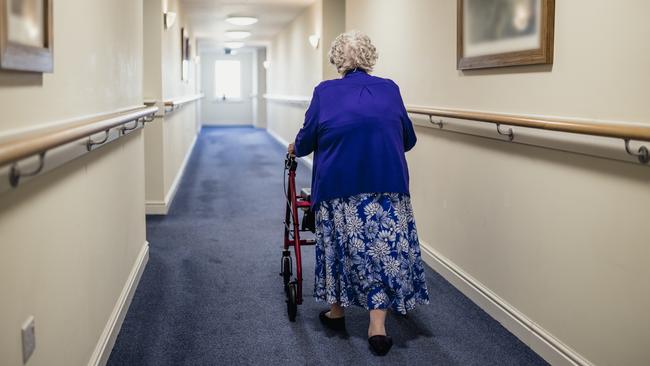Incentives needed for aged care workers to study nursing
Aged care providers are calling for support to drive more qualified nurses into aged care, including HECS waivers and pay parity with the rest of the health sector.

HECS should be waived for aged-care workers looking to upgrade their qualifications to nursing to build up the skilled workforce needed to deliver 24/7 care in nursing homes.
A new visa category should also be created to bring to Australia migrants willing to work in aged care to help plug a looming shortfall of workers, aged-care providers say.
And nurses in aged-care homes should be offered pay parity with others in the health sector, peak advocacy group Aged and Community Care Providers Association says.
The policy proposals are contained in ACCPA’s new submission to the government on its amending legislation to bring in mandatory 24/7 registered nursing care in all residential aged-care facilities from July 1, as the body calls for flexibility from government, with some homes struggling to source qualified staff to meet the deadline.
ACCPA says the sector accepts the government’s plan to implement a system providing at least one registered nurse on site in aged-care homes at all times, but it needs support in the transition, particularly for the first 12 months.

“Our sector understands Australians want to be assured of robust arrangements for the clinical care of older people, but they don’t want to see them adversely affected by unintended consequences of legislation,” ACCPA chief executive Tom Symondson said. “Eighty per cent of aged-care providers already have RNs 24/7 and many more are close to achieving the target, (but) persistent workforce shortages in aged care, made more severe by Covid, mean some providers will struggle to find enough staff by 1 July.
“We’ve proposed amendments to this legislation which we believe represent a commonsense approach intended to make it clearer for aged-care providers on how they can meet this requirement while recognising the nursing workforce shortages across Australia,” he said.
The submission calls for the “creation of a specific visa for skilled migrants willing to work in aged care”, similar to Britain’s health and care worker visa, and for “pay parity commensurate with the health sector across all states and territories”. Earlier this month, the Productivity Commission proposed a new special permanent visa for overseas care workers to help plug the shortfall in the aged-care workforce.
The ACCPA submissions also proposes “incentives to upskill existing aged-care workers to undertake a degree in nursing” to drive numbers up. “(The) use of the taxation system (including consideration of partial or full HECS waivers) to incentivise aged-care workers to undertake training” is another workforce supply measure proposed.
Some providers, particularly those in rural and regional areas, are struggling to find appropriately qualified nursing staff to add to their rosters to meet the quota by the July 1 deadline.
Aged Care Minister Anika Wells has said the government will take a commonsense approach between now and the deadline in terms of providers struggling to meet registered nursing requirements.
“We welcome (Ms Wells’) acknowledgment this week that some providers will not meet the deadline to have RNs on staff 24/7 and we want to work with the government to ensure residents continue to receive quality care,” Mr Symondson said.
ACCPA says providers want greater clarity about how exemptions will be applied, which take into account “persistent and ongoing” workforce shortages.
The submission says the legislation should “be drafted to account for unplanned leave at short notice, emergency situations, the ability to provide alternative arrangements at times of low clinical need or off-site supervision of enrolled nurses”.






To join the conversation, please log in. Don't have an account? Register
Join the conversation, you are commenting as Logout